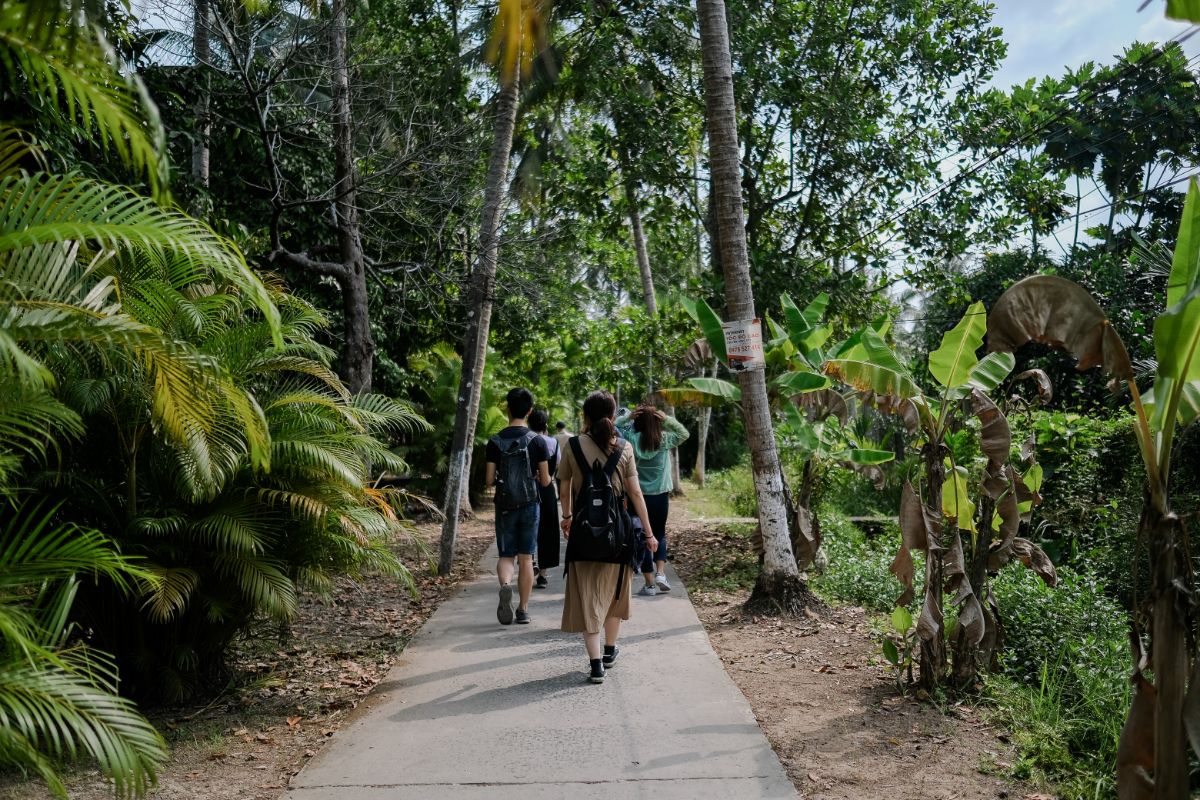
Sustainable Tourism: Eco-Friendly Travel Experiences for Conscious Travelers
Sustainable tourism is an evolving concept. Why, you ask? It’s because it takes into account the current and future impacts of tourism. Did you know it covers three aspects of tourism? So, what are these three aspects between which sustainable tourism aims to strike a balance? Well, they are economic, social, and environmental aspects of tourism. When you travel sustainably, you seek to minimize the negative environmental impact of your journey. It also helps you promote conservation and support local cultures. Ecological degradation and cultural homogenization have become a growing concern recently, making sustainable tourism more important. Let’s find out how you can prevent the exploitative practices of traditional travel with sustainable tourism.
The Rise of Eco-Conscious Travel & the Importance of Sustainable Tourism
In recent years, there has been a significant shift towards eco-conscious travel among modern tourists. Driven by a global increase in environmental awareness and a deeper understanding of the impact of human activities on the planet, more travelers are choosing destinations and travel experiences that offer eco-friendly options.
It is evident in the rising popularity of eco-lodges, green hotels, and tours emphasizing minimal environmental impact and cultural respect. Modern travelers are increasingly looking for experiences that align with their values of sustainability and conservation, indicating a profound change in how people think about and engage with tourism.
The importance of sustainable tourism lies in its holistic approach, which balances the needs of the environment, the economy, and the social structures of local communities. As global awareness of environmental issues has grown, so has the realization that traditional forms of tourism often lead to environmental degradation, cultural erosion, and economic inequality.
Sustainable tourism aims to rectify these issues by promoting environmentally friendly, culturally respectful practices, and economically beneficial to local communities. This tourism model helps preserve the natural and cultural heritage and stimulates local economies through responsible tourism practices.
Planning Your Eco-Friendly Trip
When planning an eco-friendly trip, selecting destinations that prioritize environmental conservation and benefit local communities is crucial. Consider destinations that are not just beautiful but also committed to sustainable practices.
Countries like Costa Rica and New Zealand are exemplary, with extensive conservation efforts and community benefits that support local economies and preserve cultural heritage. For accommodations, opt for places that have eco-certifications such as LEED (Leadership in Energy and Environmental Design) or Green Globe.
These certifications ensure that the accommodations adhere to strict environmental standards. Look for properties that implement energy-efficient practices, use sustainable materials, and contribute to the local community. Choosing such accommodations lessens your ecological footprint and supports businesses committed to sustainability.
Eco-Friendly Transportation Options

Reducing your carbon footprint during travel is vital. Opt for public transport, cycling, or walking whenever possible. These modes minimize your emissions and offer a more immersive experience of your destination. When public transport isn’t an option, consider renting eco-friendly vehicles such as electric or hybrid cars, significantly reducing pollution compared to conventional vehicles.
Responsible Travel Practices
When embarking on eco-friendly travel, mindful actions can significantly enhance your experience and positively impact your destinations. Adopting responsible travel practices is key to minimizing your environmental footprint. Reducing plastic use by opting for reusable items like water bottles, bags, and straws and conserving water through mindful usage in hotels and resorts are fundamental steps.
Such practices protect the environment and set a respectful example for fellow travelers. Respecting local cultures and economies forms the cornerstone of sustainable tourism. This involves engaging with local communities to preserve cultural heritage and support economic sustainability.
Opt for accommodations and experiences that contribute directly to the local economy, such as staying in guesthouses run by local families or dining at restaurants that source ingredients locally. Always be attentive to local customs and traditions, and participate in cultural activities that offer a genuine insight into the local way of life without exploiting it.
Engaging in Local Culture and Community
Engaging deeply with local culture also enriches your travel experience. Community-based tourism, for example, allows you to partake in local life, offering authentic insights and a deeper connection to the place. Activities like attending a traditional music performance, participating in a local cooking class, or visiting markets to buy crafts directly from artisans enrich your travel experience and support the preservation of local heritage and economies.
Eco-Conscious Activities and Adventures
Exploring the world responsibly starts with choosing activities that enrich your travel experience and safeguard the environment. Engaging in eco-friendly activities such as wildlife safaris, nature hikes, and cultural tours can minimize your ecological footprint while maximizing the adventure.
Opt for guided tours in places like Finland and New Zealand, where the commitment to preserving natural beauty is woven into their tourism practices. These destinations are exemplary in their sustainable approaches, offering well-regulated wildlife safaris that ensure the safety and conservation of native species and ecosystems.
Moreover, hiking through Finland’s lush forests or New Zealand’s dramatic landscapes brings you closer to nature and supports eco-tourism initiatives that fund conservation efforts and promote environmental awareness.
Sustainable Eating and Shopping
As a conscious traveler, your dining and shopping choices can profoundly impact local economies and the environment. Prioritize restaurants and markets that source their ingredients locally. This practice supports local farmers and reduces carbon emissions associated with transportation. Cities worldwide increasingly embrace farm-to-table eateries that offer fresh, local produce, contributing to a sustainable community.
Similarly, when shopping, look for local artisans and craftsmen whose products reflect the cultural heritage and creativity of the area. Opting for these choices helps reduce the environmental impact of mass-produced goods and provides financial support directly to the local workforce, enriching the community.
Eco-Friendly Gear and Travel Products
Consider investing in sustainable travel gear to reduce your environmental impact while traveling. Essentials like reusable water bottles, eco-friendly toiletries such as biodegradable soaps and shampoos, and solar chargers lessen your waste and decrease your dependency on non-renewable resources. Packing light is another effective strategy to lower your carbon footprint.
It not only saves energy and fuel but also makes traveling less cumbersome. You contribute to a more sustainable travel industry by efficiently choosing multi-functional items and packing. Adopting these practices shows a commitment to experiencing and preserving the world for future generations.
Conclusion
The growing trend of sustainable tourism is a positive sign that change is possible in the travel industry. As more individuals opt for eco-friendly travel experiences, the industry is compelled to adapt, offering more sustainable choices that cater to conscious travelers. This shift is not just about preserving the environment—it’s about creating a more equitable and sustainable world where travel is a force for good.

Prachi, an accomplished Chief-Editor at The Sustainable Brands Journal, has 15+ years of experience in Europe, the Middle East, and India, managing 90+ global sustainable brands. She’s a prolific writer in sustainability, contributing to various publications. Prachi’s unwavering passion and expertise make her a recognized authority, driving positive change and inspiring a sustainable future.





